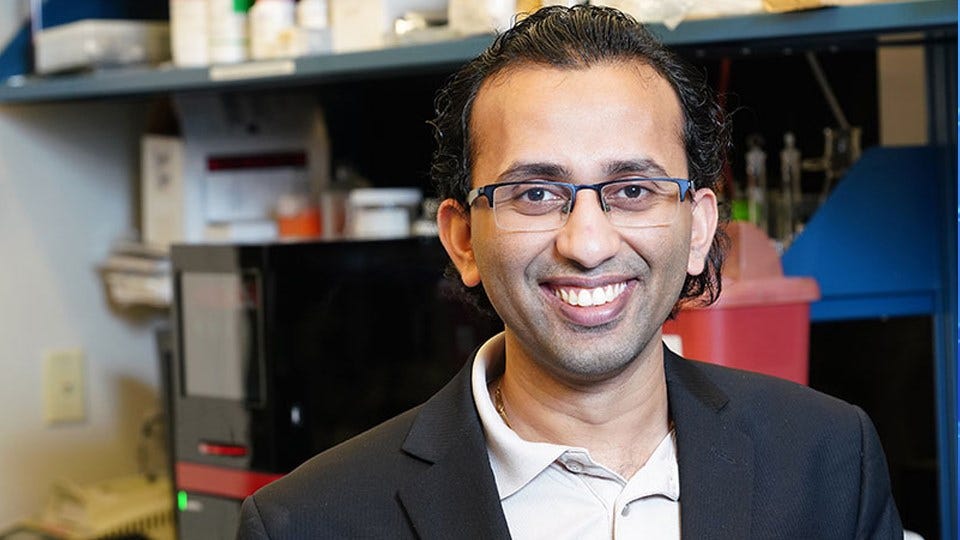Developing Tech to Diagnose Cattle Diseases
 Mohit Verma is an assistant professor of agricultural and biological engineering at Purdue. (photo courtesy: Purdue/Tom Campbell)
Mohit Verma is an assistant professor of agricultural and biological engineering at Purdue. (photo courtesy: Purdue/Tom Campbell)
Subscriber Benefit
As a subscriber you can listen to articles at work, in the car, or while you work out. Subscribe NowA Purdue University professor has been awarded more than $1.4 million in grants to further his research of bovine respiratory disease, which is one of the most common and costly diseases affecting the U.S. beef cattle industry.
Dr. Mohit Verma is working to develop biosensor technology that would help cattle producers better manage the disease and reduce the use of antibiotics.
In this week’s edition of the Ag+Bio+Science podcast, Verma discusses the challenges with AgriNovus Indiana Chief Executive Officer Mitch Frazier.
“I was sitting next to a farmer at one of those networking events and he was mentioning that oftentimes his cattle get bovine respiratory disease, but they don’t really know which bacterium or which virus might be causing the disease,” explained Verma. “They have to give antibiotics by trial and error. So that leads to overuse of antibiotics that leads to the animal being sick for longer and therefore reduce the quality of meat.”
Verma’s team is working to create a diagnostic solution that will reduce cattle losses, improve productivity and reduce the spread of antibiotic resistance.
They are developing biosensors based on detecting DNA and RNA sequences. Using nanoparticles, consisting of gold, that change color when it detects bacterium.
They want to create a tool that a farmer can use and not have to rely on lengthy lab tests.
“I think the technology seems to be more mature on the human side of things, but there are so many opportunities on the animal side of things,” said Verma.
They hope to tackle bovine respiratory disease first, but he thinks the platform has applications for any livestock disease.
The new Ag+Bio+Science podcast comes out Monday morning. Click here to learn more about the full line-up of Inside INdiana Business podcasts.
